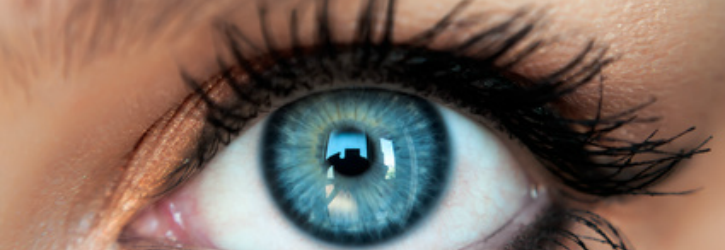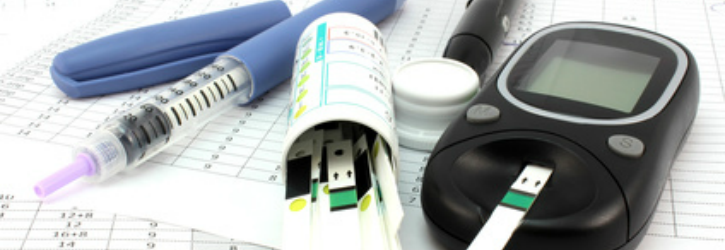
Latanoprost Timolol eye drops recall
A Latanoprost Timolol eye drops recall has been announced by the Medicines and Healthcare Regulatory Authority (MHRA).
The company behind the eye drops, FDC Pharma, are recalling a batch due to what has been classed as an ‘out of specification result for an unknown impurity’ that was identified during testing. Medical professionals are to stop providing the eye drops to patients, and suppliers and distributors are to cease moving the eye drops as well.
The NHS has been pushing the news throughout the Service to ensure batches affected by the Latanoprost Timolol eye drops recall are not used.

Compensation for pelvic mesh problems
You can claim for personal injury compensation for pelvic mesh problems, and it’s important to claim given the severity of the issues that can arise.
We’ve spent a number of years talking about pelvic mesh problems, and we’re now at a point where the number of people suffering complications appears to be increasing, and people are far more aware of the dangers now. Only recently did the NHS finally put a widespread pause on the procedure – news we welcome – after another review into the safety and the efficacy of the devices.
With some victims left unable to walk or work for the rest of their lives, claiming compensation for personal injury and losses is incredibly important.
The latest talcum powder asbestos trial
One of the latest talcum powder asbestos trial cases is underway as a 94-year-old lady is claiming that her fatal mesothelioma was caused by talc.
This is one of the many cases being pursued in an action where millions of pounds have been awarded to victims who have successfully claimed that their deadly asbestos-related illnesses have been caused by talcum powder containing the deadly substance.
The talcum powder asbestos action is one of the biggest medical product issues of our time, and it could be set to go on for a number of years.

Pelvic mesh suits continue against Boston Scientific
Pelvic mesh suits are to continue against pharmaceutical giant Boston Scientific after a Judge denied an attempt to dismiss some 800 claims.
The major pharmaceutical companies like Boston Scientific and Johnson and Johnson seem to be trying their hardest to dismiss the thousands of claims that are currently being made against them in them around the world. The UK is somewhat behind in terms of taking full legal action for victims pursuing pelvic mesh suits, and it’s a legal action we’re involved in.
This latest failed effort to dismiss claims is another small victory in what continues to be a long, hard fight for justice.

Pelvic mesh implant complications lead to NHS halt
The increasing number of pelvic mesh implant complications has finally forced the NHS to put a widespread halt on the use of the procedure as more and more women come forward with problems over the use of transvaginal mesh and transvaginal tape.
We’ve been advising women suffering mesh implant complications since the start of 2013, and our Group Action Lawyers are involved in legal action over the use of the devices. We wholeheartedly welcome the NHS pause on the use of the implants that’s arisen from a review chaired by Baroness Julia Cumberlege.
This may prove to be another crucial step forward toward justice for the many women who have suffered catastrophic and lifelong injuries caused by mesh implant complications.

Stagecoach self-drive buses to be tested
Stagecoach self-drive buses are to be tested in depots, marking a potential shift toward self-driving technology on UK roads.
Currently, self-drive vehicles are not yet fully legal for road-use, but the government plans to have them on pubic roads as soon as possible. We have the likes of Tesla testing their self-drive technology right now, despite there being a number of accidents (and fatalities) so far that are linked to self-drive technology.
We remain incredibly concerned about these hastening developments.

Slime borax ingredient ‘toxic’ to children
The levels of a slime borax ingredient contained in the popular children’s toy has been found to be at potentially ‘toxic’ levels in eight of the leading slime products.
According to research conducted by consumer action group Which?, eight of the 11 leading slime products tested contained amounts of boron – a chemical in borax – deemed to be unsafe, leaving children at risk of irritation, diarrhoea, vomiting and cramps.
According to the research, the levels of the dangerous chemical may not be clearly listed on the ingredients and may be described as ‘contact lens solution’ which contains borax.

Phenytoin 90mg/5ml Oral Suspension immediate discontinuation
There has been an immediate discontinuation of unlicensed medicine Phenytoin 90mg/5ml Oral Suspension and a recall of the product.
The medication, manufactured by Rosemont Pharmaceuticals Limited, is now no longer on the shelves having been recalled and discontinued with immediate affect as a result of worrying data that suggested that the medication becomes difficult to resuspend over shelf-life.
Patients who use the Phenytoin 90mg/5ml Oral Suspension are being told to contact their doctors for more information and advice about the issues that have been identified.

Ticketmaster data breach group action
A Ticketmaster data breach group action is on the horizon as our Group Action Lawyers have taken on a number of cases against the ticketing service for their data breach that was revealed last month.
Some 40,000 victims in the UK are thought to have been affected. Those who used the service between February 2018 and June 2018 may have had their data copied using a hacked piece of script that was reportedly not supposed to have been used for the purposes Ticketmaster were using it.
The Ticketmaster data breach was also identified and reported to the company back in April, yet nothing was done about it.

Roche Diabetes Care test strip errors leads to recall
Roche Diabetes Care test strip errors has led to a recall of a number of home-use and point-of-care glucose monitoring systems.
The Roche Diabetes Care test strip errors are for the following systems: Accu-Chek Aviva; Accu-Chek Performa; and Accu-Chek Inform II.
There is a risk of a strip error message that may lead to either falsely high or falsely low blood glucose results reported.
A troubling testimony in the Gosport War Memorial Hospital deaths
A troubling testimony in the Gosport War Memorial Hospital deaths has been recounted in the recent independent inquiry that deemed some 450 deaths at the hospital were linked to an unsafe opioid-use policy.
Families who have been fighting for an inquiry for years have finally received the news that they say they knew all along: that their loved-ones died in the hospital prematurely.
At the centre of the Gosport War Memorial Hospital deaths scandal is Dr Jane Barton; the GP stationed there who claims that she was only ever doing the best for her patients. One particularly troubling testimony from 2001 that was recounted in the independent report paints a different story entirely.

Gosport hospital deaths could have been avoided
According to an independent report, 450 Gosport hospital deaths could have been avoided after life-shortening opioids were reportedly given to elderly patients who did not need them.
The damning report found that a GP working at the hospital, Dr Jane Barton, routinely overprescribed drugs to patients in the 1990s, and consultants who were aware of her actions did not intervene. Further, nurses and pharmacists would have known that the high levels of opioids administered would not always have been appropriate, and they too failed to stop the deaths.
After years of the families campaigning and suffering over the Gosport hospital deaths, the report has finally confirmed what they already knew.